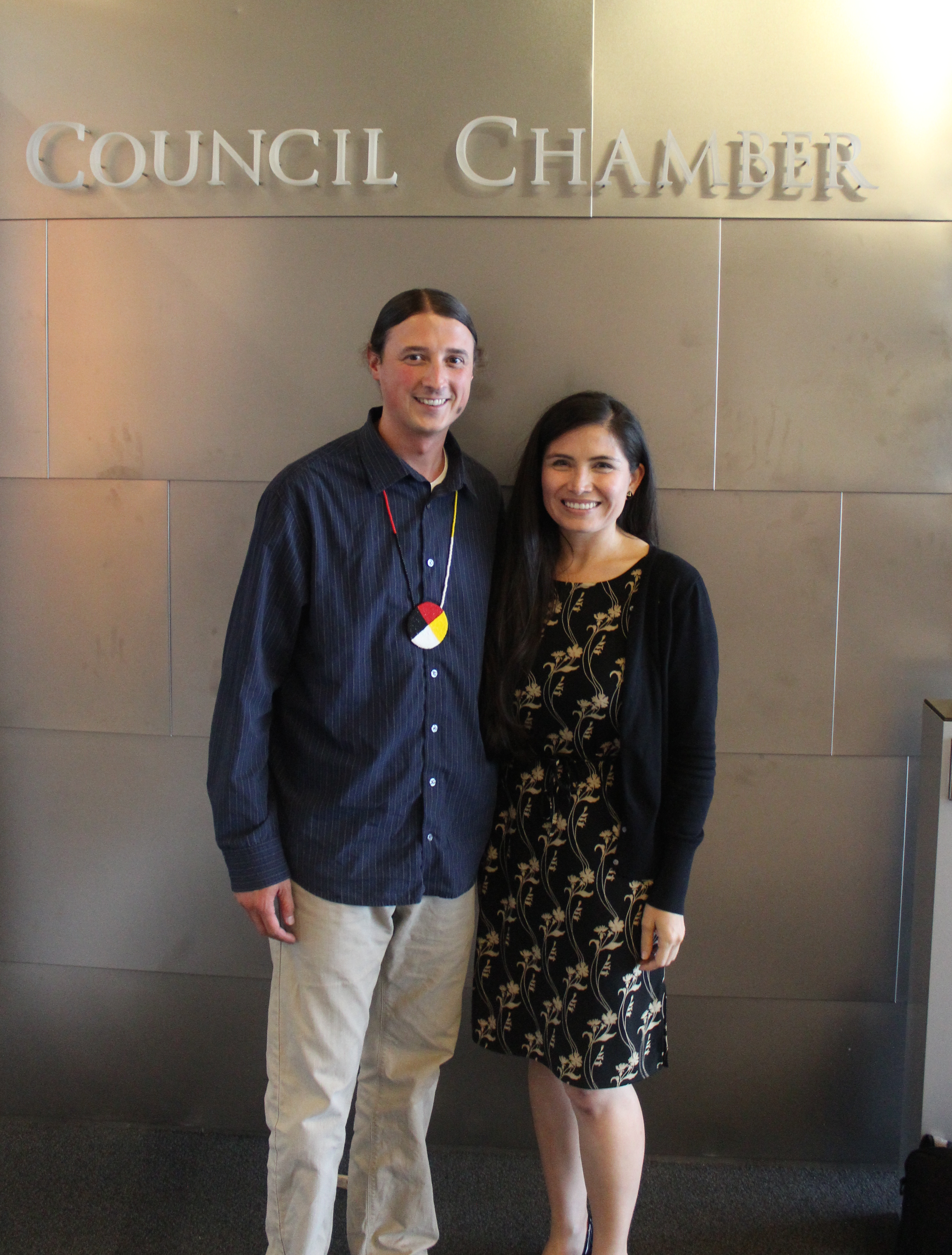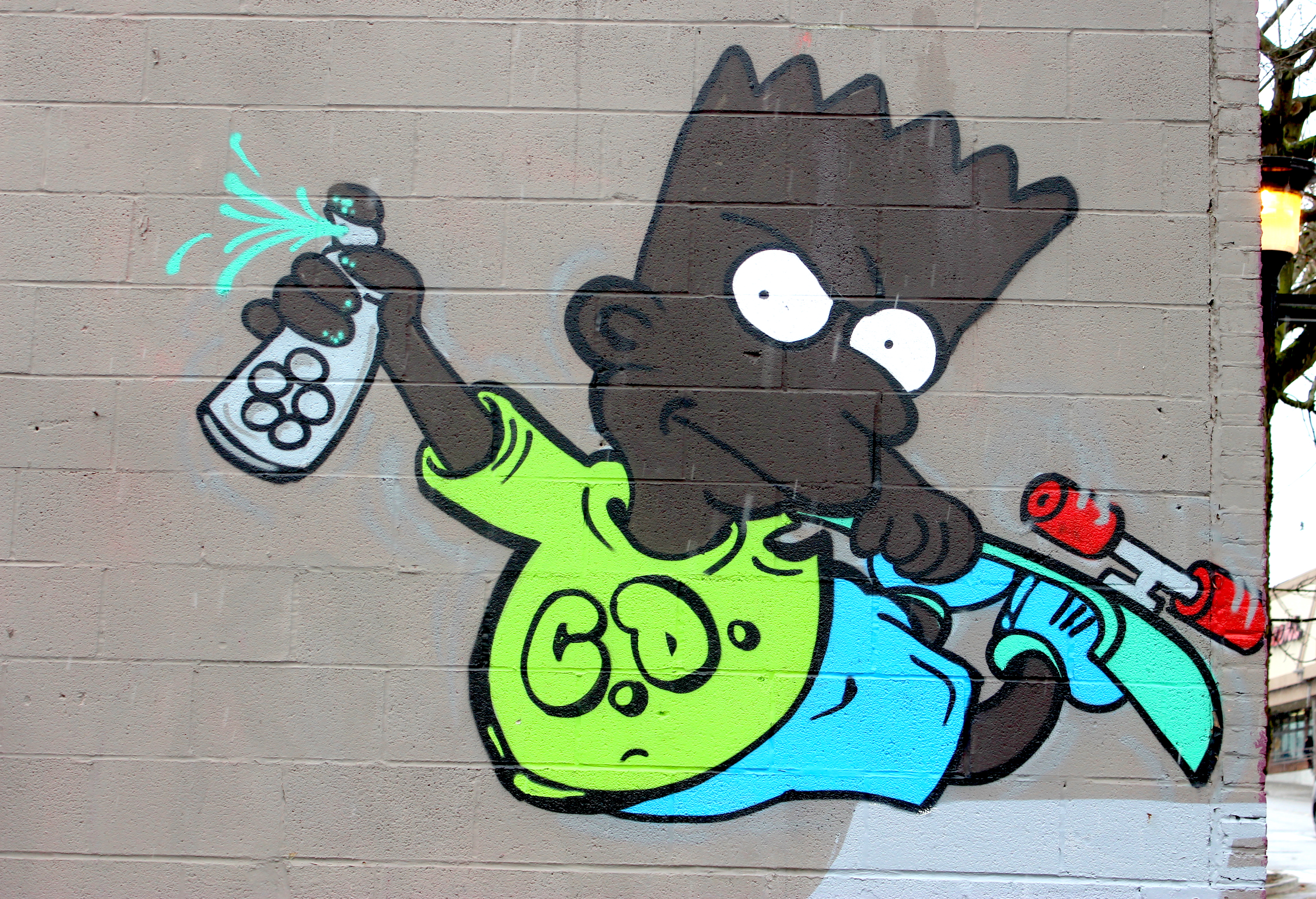Above: Hero? Genocidal jerk?
“This is possibly one of the most passionate and emotional committee sessions we’ve had in years,” Councilmember Nick Licata quipped near the end of what was definitely one of the most passionate and emotional comittee sessions in years.
Today, the Seattle City Council revisited the resolution to change Columbus Day to Indigenous Peoples’ Day in Seattle, which the council was supposed to take a vote on Sept. 2. However, that didn’t happen, because as Councilmember Bruce Harrell said, “I want to milk this out a little bit.” He said he wanted to let the issue accrue more media attention and dissenting opinion, the latter of which wasn’t present in the council chambers on Sept. 2 when the room was full of Native Americans with drums in hand.
Today was a markedly different story, as the Order of the Sons of Italy in America from the Seattle-Fedele Lodge showed up to decry what they saw as an attack on Italian cultural heritage.
“We’re shocked you would even consider desecrating the legacy of the Italian Americans who built this country,” Sons of Italy member Tony Anderson testified. “By doing this, you are slighting all Americans and Italians and our civic rights and ethnic heritage. I pray you observe the same courage Columbus did in that summer of 1492.”
Audrey Manzanares, also of the Sons of Italy, said that “As much as St. Patrick’s Day celebrates Irish heritage, Columbus Day is the only federal recognized holiday for Italian heritage.” President of the Sons of Italy, Martin Nigrelle, accused the council of “dividing two communities that haven’t had a conflict in the past” and forcing them to rank their oppression.
Ethel Branch, a Navajo lawyer from the Seattle Human Rights commission (a group that sponsored and help write the resolution in question) took to the stand after the overwhelming Italian critique to deliver one of the the day’s most emotional testimonies, during which she wept.
“I grew up on the reservation, and the children living 20 miles away, off the reservation, lived very different lives than me,” Branch said. “Why was it that when I called the police when I was a child, they wouldn’t come, but they would if I lived 20 miles away? The lives of Indigenous people are still affected by colonialism! Is it so wrong to want healing?”
Above: Matt Remle
Matt Remle, the Lakota man who first brought to the council the resolution to abolish Columbus Day and institute Indigenous Peoples’ Day, was asked by Bruce Harrell to defend the motion after “these people spoke from their hearts.”
Remle explained that the historical record maintains that Columbus committed a genocide against the indigenous people he encountered in America that “some historians estimate was in the millions,” and that the abolishment of Columbus Day isn’t meant to be an attack on Italians at all, but rather “us asking for respect” in regards to Christopher Columbus’ legacy of atrocities.
“In the same way a Jewish American wouldn’t want to celebrate a Hitler Day, or New Yorkers wouldn’t want to celebrate Bin Laden Day, we ask for that same respect,” Remle said.
At the comment, a man in a green sports jersey threw up his hands, shouted “You can’t compare Italians to Hitler! That’s insulting! That’s it! I’ve had it!” and left the room as Remle spoke, starting off a mass exodus of Italians (who returned moments later).
A lawyer on the panel that was pushing for the resolution repeated that confronting Columbus’ legacy wasn’t meant to be an attack on Italian culture, and that it would be great if people ate both salmon and Italian food on the contested day, which drew some laughs from the tense crowd. Later, the pleasant food metaphor was repeated by councilmember Harrell.
Councilmember Nick Licata offered his own unique perspective, claiming that “three out of four [of his] grandparents were from Italy.”
“I’m Italian, and I am a strong supporter of this resolution, and I think it’s important we have it on this day,” Licata said. “I don’t see it, as an Italian American, as infringing on my rights or ethnic heritage or some expression of hate. My experience with Italian Americans is that we are very gracious and have done a lot in history to work with other folks, and I see this as a way of extending that tradition to other people to respect them. Columbus was Italian, and we celebrate the individual because he was Italian, but not because of his actions. I think that’s one of the things we’re stuck on—we’re linking Columbus the man to Italian heritage.
“No one individual, no matter how great or poorly they behaved, should be linked to an entire heritage. Columbus acted in ways we find today horrid, and in fact, our own leaders did too. Washington was one of the largest slaveholders in America at the time. We had former president Jackson, who led to the death of thousands of people on the Trail of Tears. I grew up celebrating Columbus Day, and quite honestly, I never thought of it as an Italian celebration day. It was a celebration of the European discovery of the new world. We can still and certainly should manifest our pride in Italian culture in as many ways as we can, but we need to recognize that there were cultures here before him that are worth celebrating too.”
Above: Sawant cited King County’s 2005 switch in namesake as precedent for the resolution.
Licata’s testimony silenced the room before Councilmember Kshama Sawant offered her own perspective, which was, unsurprisingly, more controversial. She reiterated that the motion was not an attack on Italians, who she credited as a people who “have championed social justice for a long time, and were, in fact, crucial in the earliest labor movements” of which her own politics are a direct descendent. She also cited the fact that King County was once named after a slaveowner and supporter of the Fugitive Slave Act, William R. King, but after a mass movement to change the namesake, was switched to honor Martin Luther King instead.
“Columbus’ actions are not a matter of opinion,” Sawant said, offering that people in the room should read Howard Zinn’s A People’s History of the United States. “I will assume the people testifying about Columbus’ actions otherwise are ignorant of the facts.”
The man in the green sports jersey (who had returned after leaving the room the first time) threw up his hands and left a second time at Sawant’s comment, rubbing his temple in frustration.
The committee voted unanimously in favor of the resolution, which will now be brought for a second and final time to the full council on Oct. 6. The Italian contingent was audibly displeased, claiming the session was an “absolute waste of time” as they left.
The man in the green sports jersey cornered Remle on the way out, telling him his comment about Hitler was “the most derogatory comment I’ve ever heard,” and that he should “get some education.”
Remle told Seattle Weekly that he has grown accustomed to comments like this.
“When I put the press release out about the resolution initially, it had my name, phone number, and email on it—I’ve been getting plenty of personal attacks and phone calls, I’m used to it. This is nothing compared to the attacks I got when I brought a resolution forward about Indian high school mascots. People are really attached to their Redskins, and they get really uncomforatble when you confront their privilege.”
The school board is already moving forward independently on one portion of the Indigenous Peoples’ Day resolution that asks that the Seattle Public School Districts introduce local indigenous curriculum to history classes (above). The resolution is being introduced tonight and will be voted on Oct. 1.








